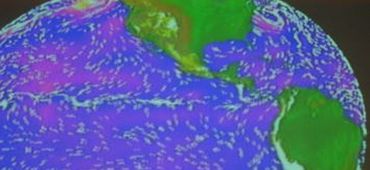Research & the environment

The possibility
for research within technical/natural science to affect our environment
occasionally comes under attention. Naturally, researchers must
follow applicable environmental laws, not least in their work with
dangerous chemicals (see research on chemicals,
etc.) or in how to destroy or deposit dangerous waste. Science should promote
people's health, safeguarding biological diversity, utilizing culture-historical
values, preserving the ecosystem's long-term productive ability
and securing good management of natural resources
Research for the environment
But researchers must also recognize that the aim and consequences of research can reflect and change people's stand on environmental issues and on the environment itself. In its Rio Declaration on Environment and Development, the United Nations pointed out that environmental protection is an integral part of human development and challenged all countries to work actively for better scientific understanding in this area, as well as for the development of new and innovative technologies. This work has been continued in the Convention on Biological Diversity and the United Nations Framework Convention on Climate Change and the Kyoto protocol.
European Union
On a European level, the European Union has reacted to the Rio Declaration in its Amsterdam Treaty (which gives a central position to the principle of sustainable development), and later through the introduction of the EU's Sixth European Community environment programme. In 2003 in the EU, a resolution on research and sustainable development was adopted.
Other initiatives
The 1999 World Conference on Science was held in Budapest. There, The Declaration on Science and the Use of Scientific Knowledge was created, taking up questions regarding the environment and sustainable development. The International Council of Chemical Associations (ICCA) has commented on TRIPs and the environment. The Association of University Leaders for a Sustainable Future has its Talloires Declaration on universities' responsibility for sustainable development. Forestry is given attention in the Statement of Forest Principles (a UN document from the Rio Process). Additionally, FAO has published guidelines under the title Environmental impact of forestry.
Appeals
Many researchers and organizations have drafted appeals encouraging care for the environment. The InterAcademy Panel on International Issues carries particular weight in its statement Transition to Sustainability in the 21st Century: The Contribution of Science and Technology. The latest development is a draft Paris Appeal of scientists in favour of biodiversity. Some researchers believe that one always should apply a precautionary principle to such research that "raises threats of harm to the environment or human health ... even if some cause and effect relationships are not fully established scientifically", see Wingspread Statement on the Precautionary Principle. See also Recommendation 1787 (2007) on the precautionary principle and responsible risk management, from the Council of Europe.
For the researcher employed by a multinational company, there is The OECD Declaration and Decisions on International Investment and Multinational Enterprises. According to OECD's rules, these companies are to promote economic and social welfare through the effective use of capital, technology and employees. Great importance is attached to environmental protection.
Last updated: 2010-01-03

